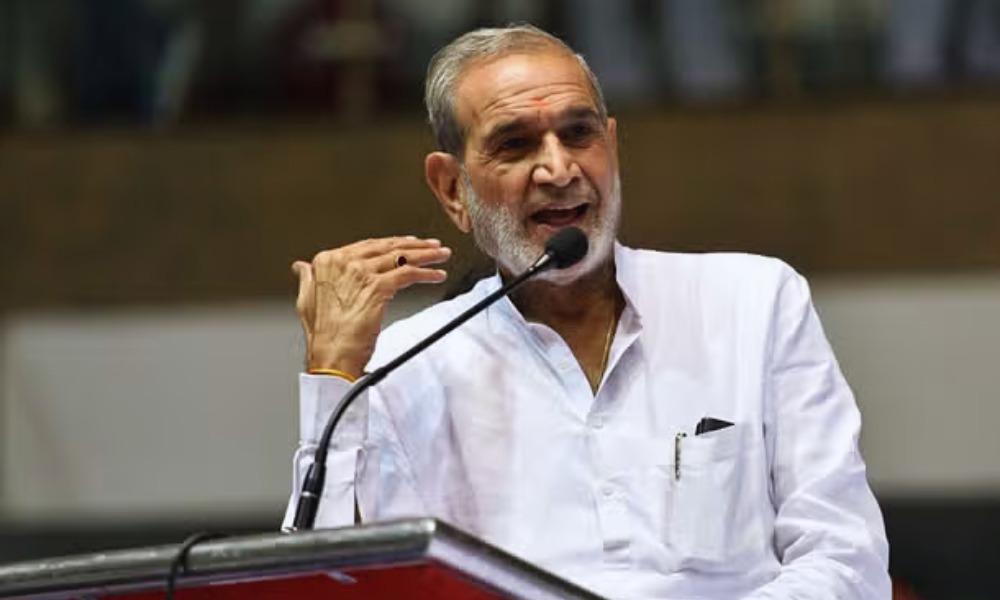Ex-Congress MP Sajjan Kumar Gets Double Life Term for 1984 Anti-Sikh Riots Murders

A Delhi court on Tuesday sentenced former Congress MP Sajjan Kumar, aged 80, to two life terms for the murder of a Sikh man and his son during the 1984 anti-Sikh riots.
The court strongly condemned the crimes, calling them “undoubtedly brutal and reprehensible.”
Court’s Verdict and Sentencing
Kumar was convicted for the killings of Jaswant Singh and his son Tarundeep Singh in Saraswati Vihar.
The court sentenced him to life imprisonment on two counts: one for the double murders under Section 302 of the Indian Penal Code (IPC) and another under Section 436, which deals with destruction of property by fire or explosives. Both sentences will run concurrently.
While the prosecution sought the death penalty, the court, led by Special Judge Kaveri Baweja, declined to categorize the case as “rarest of rare,” citing mitigating factors such as Kumar’s advanced age, health issues, and his bedridden wife.
Baweja explained, “The satisfactory conduct of the convict as per the jail authorities’ report, his roots in society, and the possibility of his reformation and rehabilitation tilt the scales in favor of life imprisonment.”
Previous Conviction and Legal Implications
Kumar is already serving a life sentence for another case related to the anti-Sikh riots, in which he was convicted by the Delhi High Court in 2018. That judgment had specified that Kumar would remain in prison for the rest of his life.
Senior advocate HS Phoolka, representing the complainant, clarified the significance of the two life sentences, stating, “One has been awarded for murder under Section 302 IPC, and the other for offences under Section 436 IPC. Both will run concurrently, but these two life sentences will significantly impact any future bail plea for Kumar.”
Court’s Observations on the Riots
The court acknowledged that the incident was part of a larger sequence of attacks, similar to the one for which Kumar was previously convicted.
On December 12, 2018, he was found guilty of leading a mob that killed five people in another riot following Indira Gandhi’s assassination.
Regarding the current case, the court noted, “Though the killing of two innocent persons is a grave offence, the circumstances do not make it a ‘rarest of rare’ case warranting the death penalty.”
The court also highlighted the suffering of the victims’ families. It stated that Kumar, as part of the rioting mob, not only caused the deaths of Jaswant Singh and his son but also oversaw the burning of their home and looting of their belongings.
The verdict further pointed out that, “The helplessness of the victims, the lack of any support from neighbors, and the failure of police intervention have been clearly established from the witnesses’ uncontroverted testimonies.”
Aggravating Factors Considered
While sentencing Kumar, the court listed multiple aggravating factors, including:
- The brutal murder of two innocent people, burned alive in front of their family.
- The trauma endured by the survivors—Jaswant Singh’s wife, daughter, and niece.
- The deliberate targeting of Sikh men by rioting mobs.
- Kumar’s involvement in a similar case, where he was previously convicted for leading a mob that killed five people.
Despite these factors, the court ultimately decided against the death penalty, prioritizing Kumar’s health and age.
Jail Report on Sajjan Kumar’s Health
During sentencing, the court reviewed a report from Tihar Jail authorities detailing Kumar’s deteriorating health.
The report indicated that Kumar struggles with daily activities, is unable to work, and is under medical treatment, including antidepressants and sleep medications. However, the report confirmed that he does not require psychiatric intervention at this stage.
Case Background and Investigation
The case pertains to the events of November 1, 1984, when violent mobs, seeking revenge for Indira Gandhi’s assassination, targeted Sikhs in various parts of Delhi.
The prosecution described how an armed mob looted and burned Sikh homes, including that of the complainant, Jaswant Singh’s wife.
Originally registered at the Punjabi Bagh Police Station, the case was later taken over by a Special Investigation Team (SIT).
The prosecution argued that Kumar incited and led the mob that killed Jaswant Singh and his son, ransacked their home, and set it ablaze.
Final Judgment
Special Judge Kaveri Baweja ruled that Kumar’s crimes warranted life imprisonment rather than the death penalty. The court emphasized the brutality of the mob violence but acknowledged the mitigating circumstances in Kumar’s favor.
Kumar remains incarcerated in Tihar Jail, serving both his previous and newly awarded life sentences.








